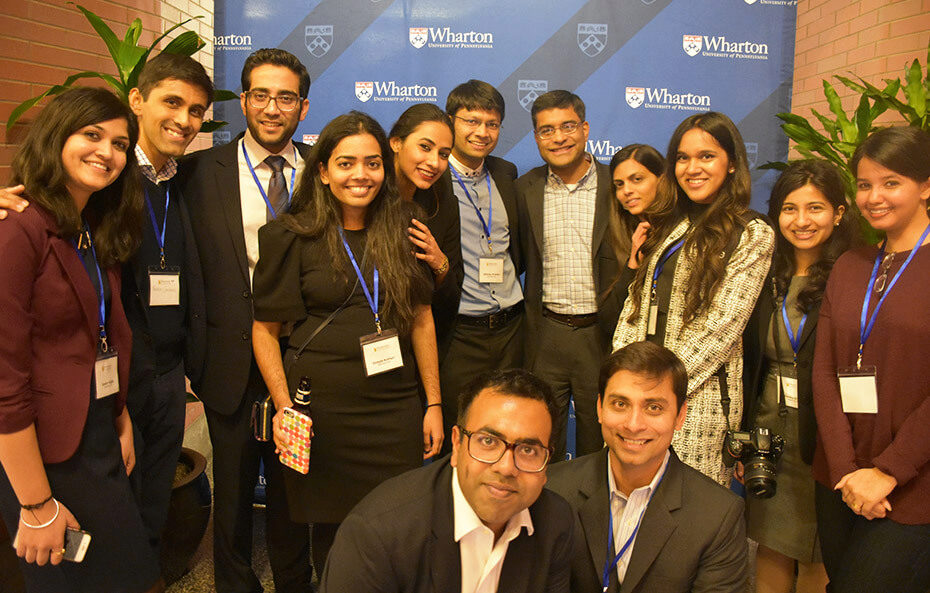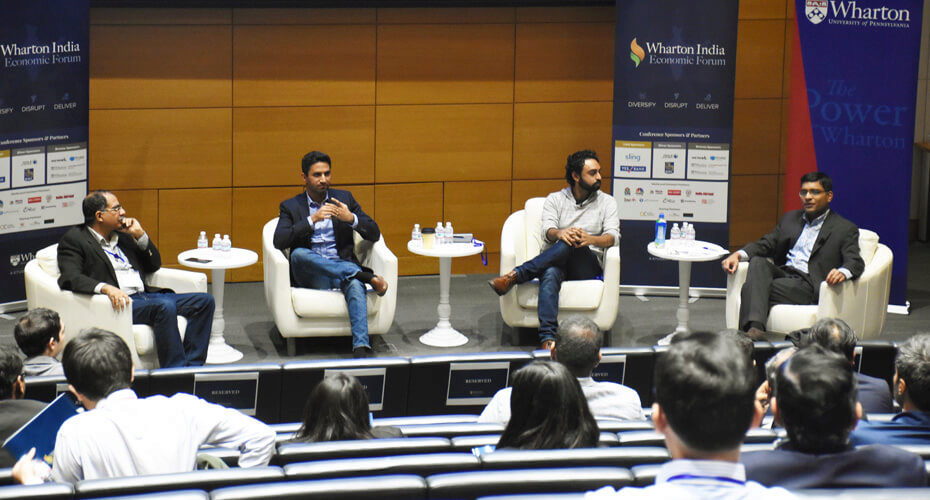
India’s diversity is real, and so are the challenges of doing business there, said the panelists on Innovation and Digital India at the 22nd Wharton India Economic Forum. The panel was moderated by Saikat Chaudhuri, Executive Director of the Mack Institute. Weighing in with his insights on firm innovation practices, Chaudhuri engaged the panelists in a rich discussion on the challenges of operating in the Indian market.
India’s rapid growth not only opens doors to many opportunities, but also offers the possibility of having impact that is both deep and intense in a relatively short period of time. India’s rising technological imprint in the past few years has been raising consumer expectations on products and services. And just as infrastructure has begun catching up with the consumer expectations, Indian consumers’ willingness to pay has begun to increase too, said Gaurav Sharma, COO of Saavn. (The company offers smart interface for Bollywood music search and streaming.)
However, for enterprises wanting to succeed in India, it is necessary to remember that technology is just a catalyst for growth. The real drivers of success are managing user expectations, marketing, and execution. Indian consumers, especially the middle class, are not easy to sell to, Sharad Sharma of iSPIRT asserted. These consumers are diverse, so segmentation has to be nuanced and befitting the varied psychographics and user demographics.

The third panelist, Umang Dua from Handy, opined that India is still an early market and hence the reward is low when compared to operating in the U.S. Resource-constrained startups need to consider the consumer willingness to pay before jumping in, he said. Saavn, on the other hand, put this into practice by creating the need, educating the investor community on India’s multiple user personas, and targeting different customer segments through parallel growth strategies.
On advising what can be done to succeed with India’s unique challenges, Sharad Sharma pointed out the non-linear change in India: its economic inequalities persist despite its technology penetration and data richness. Unlearning known business strategies is essential to adapt to the non-traditional consumer base. Engaging with end consumers and experimenting with strategies that apply combinatorial innovation are all necessary, he emphasized.
Entrepreneurs aiming to succeed in India should think of disrupting the market rather than trying to fit in the existing setup, the panelists agreed. Taking stock of the cultural complexity in India, entrepreneurs need to make their own secret sauce of skill sets, attitude, and risk-taking abilities. Breaking free of biases will not only create disruptive innovations in India, but also pave the way for reverse innovations where successful innovation models of India can be replicated in other markets.
The 22nd annual Wharton India Economic Forum (WIEF) Philadelphia conference is a student-run platform that brings industry leaders, students, and academics together to discuss India’s evolution into a global power. The Innovation and Digital India panel discussed the opportunity and challenges of innovating to succeed in India.
Saikat Chaudhuri also spoke at the conference on how incumbent firms can navigate digital disruption. Download the Mack Institute’s white paper on this topic here.



